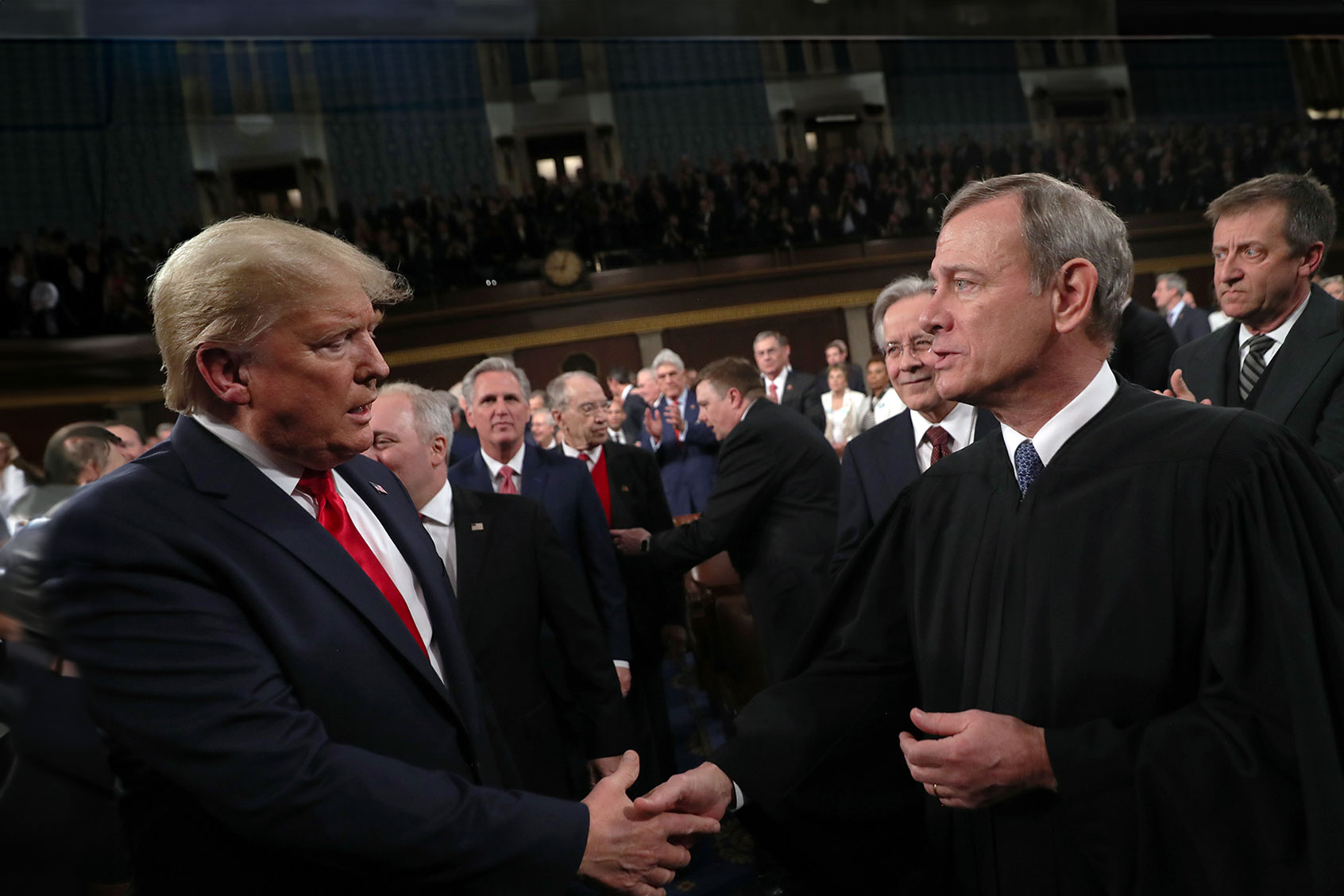Concerns are mounting over the role of Chief Justice John Roberts in shaping the United States Supreme Court into a body increasingly aligned with the interests of former President Donald Trump. In her new book, Without Precedent: How Chief Justice Roberts and His Accomplices Rewrote the Constitution and Dismantled Our Rights, legal scholar Lisa Graves argues that Roberts has compromised both the integrity of the Court and the principles of American democracy to support Trump’s agenda.
Graves contends that Roberts has betrayed the promise he made during his confirmation hearings two decades ago, which asserted that no one is above the law. She points to the Court’s decision to shield Trump from criminal prosecution as a pivotal example of this betrayal. “When Trump claimed he was above the law, Roberts orchestrated a ruling that effectively pardoned him,” Graves stated. This ruling, she argues, has set a dangerous precedent that undermines the rule of law and emboldens authoritarianism.
The dynamics of the Supreme Court have shifted dramatically, and Graves attributes this transformation to a coordinated effort by right-wing groups, particularly the Federalist Society. This organization, led by influential figures like Leonard Leo, has sought to install justices who would advance a conservative agenda, thereby reshaping the judiciary to reflect their ideological goals. Roberts was seen as a key player in this strategy, positioned to deliver outcomes favorable to conservative interests.
Corruption Allegations and the Court’s Integrity
The perception of corruption within the Supreme Court has intensified, especially following allegations against justices such as Clarence Thomas. Investigative reports have revealed undisclosed gifts and financial ties that raise questions about impartiality. “Roberts has failed to address the conflicts of interest among his colleagues, allowing a politicized court to flourish,” Graves noted.
Public trust in the Supreme Court is now at an all-time low. Polls indicate that many Americans believe the Court is acting with impunity, reinforcing partisan divides and undermining the foundational principle of judicial neutrality. The Court’s decisions, particularly those that have disenfranchised voters through gerrymandering and curtailed the Voting Rights Act, have further fuelled these concerns.
Graves highlights John Roberts‘s pivotal role in the landmark case Shelby County v. Holder, wherein the Court dismantled critical provisions of the Voting Rights Act. This ruling, she argues, has enabled states to implement laws that disproportionately impact minority voters. “Roberts disregarded substantial evidence that showcased ongoing voter suppression efforts,” she explained.
Calls for Accountability and Court Reform
As the political landscape evolves, Graves emphasizes the urgent need for accountability and reform within the judicial system. “The American people can challenge this Court’s decisions by advocating for reforms that restore our rights,” she stated. The recent moves by MAGA Republicans to undermine civil rights legislation have highlighted the imperative for a judiciary that reflects democratic values rather than partisan interests.
The future of the Supreme Court remains uncertain, especially with Trump’s potential return to political power. “The Constitution clearly limits presidential terms, yet the current Court seems willing to overlook such fundamental principles,” Graves remarked. As the nation grapples with these issues, the call for a judiciary committed to justice and equality has never been more pressing.
The implications of Roberts’ leadership extend far beyond the courtroom, affecting the very fabric of American democracy. Whether the judiciary can reclaim its integrity and serve as a fair arbiter of justice is a question that looms large as the nation approaches critical elections and political reckonings.







